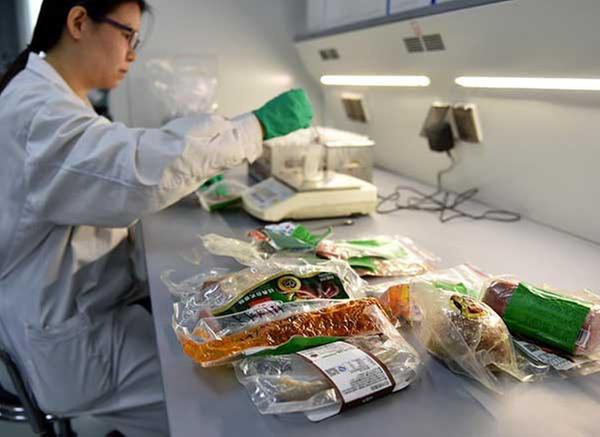Scaremongering about food safety constitutes a crime
China Daily | Updated: 2017-04-20 07:22
 |
| Food safety administration staffs inspect a restaurant in Ningbo, Zhejiang province, on Nov 10, 2014. [Photo/Xinhua] |
That food safety directly concerns people's wellbeing explains why rumors about unsafe food and food scandals spread so fast, and can quickly spark public anxiety, even panic.
The internet accelerates the speed with which rumors spread and enables false information to be convincingly packaged as the truth with the use of sensational photos and videos, which are easily manipulated on smartphones nowadays, giving the fabricated information credibility, especially to those lacking media and scientific literacy.
The penalties paid by the rumormongers, even if they are caught, are disproportionate to the rumors' negative social influence, let alone the losses of the food enterprises.
In fact, the rumormongers can only be punished according to public security codes, rather than the Criminal Law.
In most cases, only the social media platform stands out to shut their accounts or simply delete the falsehood information they make up. And that only happens when the rumors are serious enough to catch the attention of the authorities.
Although companies can prosecute people for intentionally damaging their reputation, most rumors relate to a whole industry, rather than aiming at individual companies. The current Criminal Law, therefore, cannot be applied to rumormongers.
The China Food and Drug Administration is soliciting public opinions on a draft regulation it recently issued that stipulates rumors should be investigated by the police according to the law. That points to the right direction of solving the problem, as criminalizing rumor making on food safety is the very first step to deter the rumormongers.
























